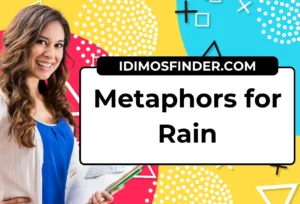Life is an unpredictable journey — full of twists, turns, ups, and downs. Throughout history, people have used idioms — those colorful, figurative expressions — to share the essence of their experiences, wisdom, and observations about everyday living.
In this article, we’ll explore 25 meaningful idioms about life to help you connect, reflect, and express yourself with warmth, care, and a touch of creative language. I’ve personally found that idioms not only make conversations more interesting, but they also help us relate to others on a deeper level.
1. The Ball Is in Your Court
Meaning: It’s your decision or responsibility now.
Example: “I’ve done my part — now the ball is in your court.”
Best Use: When encouraging someone to make a choice or take action.
Other Ways to Say: It’s your move, It’s up to you.
2. Life Is Full of Twists and Turns
Meaning: Life is unpredictable and changes often.
Example: “Our journey had many twists and turns, but we made it through.”
Best Use: To describe a life full of unexpected moments.
Other Ways to Say: Life is a rollercoaster, Life has ups and downs.
3. Every Cloud Has a Silver Lining
Meaning: There’s something positive in every difficult situation.
Example: “Losing my job was tough, but it pushed me to start my own business — every cloud has a silver lining.”
Best Use: To comfort someone going through challenges.
Other Ways to Say: Look for the good, There’s hope in hardship.
4. Burn Your Bridges
Meaning: Do something that makes it impossible to go back.
Example: “He burned his bridges when he insulted his boss before quitting.”
Best Use: When warning about damaging relationships or opportunities.
Other Ways to Say: Cut ties, Close the door behind you.
5. Bite Off More Than You Can Chew
Meaning: Take on too much at once.
Example: “Don’t bite off more than you can chew with that big project.”
Best Use: To advise someone to be realistic with their goals.
Other Ways to Say: Take on too much, Overcommit.
6. Weather the Storm
Meaning: Endure a difficult situation with composure.
Example: “We’ll weather the storm together as a family.”
Best Use: To show support and unity in tough times.
Other Ways to Say: Ride it out, Get through it.
7. What Goes Around Comes Around
Meaning: Your actions have consequences.
Example: “He was kind to everyone — what goes around comes around.”
Best Use: To teach about karma and life lessons.
Other Ways to Say: You reap what you sow, Karma.
8. A Taste of Your Own Medicine
Meaning: Get treated the way you treat others.
Example: “He finally got a taste of his own medicine when someone ignored him.”
Best Use: To point out negative consequences.
Other Ways to Say: Reap what you sow, Payback.
9. Cry Over Spilled Milk
Meaning: Worry about something that can’t be undone.
Example: “It’s done — don’t cry over spilled milk.”
Best Use: To help someone move past mistakes.
Other Ways to Say: Let it go, Move on.
10. Break a Leg
Meaning: Good luck!
Example: “Break a leg at your performance tonight!”
Best Use: To wish someone well before an important event.
Other Ways to Say: Knock ’em dead, Do your best.
11. Climbing Mountains
Meaning: Facing big challenges.
Example: “She’s been climbing mountains to get her degree while working full-time.”
Best Use: To admire someone’s perseverance.
Other Ways to Say: Overcoming obstacles, Facing hardships.
12. Sailing Through Rough Waters
Meaning: Going through tough times.
Example: “Their marriage survived sailing through rough waters.”
Best Use: To talk about endurance.
Other Ways to Say: Tough it out, Navigate difficulties.
13. Dancing in the Rain
Meaning: Finding joy despite troubles.
Example: “She learned to dance in the rain instead of waiting for the storm to pass.”
Best Use: To inspire positivity and hope.
Other Ways to Say: Embrace the moment, Find joy in hardship.
14. Steal Someone’s Thunder
Meaning: Take credit for someone else’s idea or achievement.
Example: “He stole my thunder by announcing the news first.”
Best Use: When pointing out unfair behavior.
Other Ways to Say: Take credit, Upstage.
15. Actions Speak Louder Than Words
Meaning: What you do matters more than what you say.
Example: “He promised to change, but actions speak louder than words.”
Best Use: To stress the importance of behavior.
Other Ways to Say: Deeds, not words; Prove it.
16. A Blessing in Disguise
Meaning: Something good that seemed bad at first.
Example: “That rejection was a blessing in disguise.”
Best Use: When talking about unexpected success.
Other Ways to Say: Hidden benefit, Good from bad.
17. Go Up in Flames
Meaning: Fail or end suddenly and completely.
Example: “His plan went up in flames when the funding was cut.”
Best Use: To describe a failure or disaster.
Other Ways to Say: Crash and burn, Fall apart.
18. Pull Yourself Together
Meaning: Regain composure and focus.
Example: “Take a deep breath and pull yourself together.”
Best Use: To encourage calm and resilience.
Other Ways to Say: Get a grip, Calm down.
19. When It Rains, It Pours
Meaning: Problems often come all at once.
Example: “First the car broke down, then I lost my wallet — when it rains, it pours.”
Best Use: To explain a series of setbacks.
Other Ways to Say: Bad luck comes in threes, Trouble multiplies.
20. Rome Wasn’t Built in a Day
Meaning: Important things take time.
Example: “Be patient — Rome wasn’t built in a day.”
Best Use: To encourage persistence.
Other Ways to Say: Good things take time, Be patient.
21. Cross That Bridge When You Come to It
Meaning: Don’t worry about future problems now.
Example: “Don’t stress — we’ll cross that bridge when we come to it.”
Best Use: To ease someone’s worries.
Other Ways to Say: Deal with it later, Don’t borrow trouble.
22. Take the Road Less Traveled
Meaning: Make an unconventional choice.
Example: “She took the road less traveled and started her own business.”
Best Use: To praise creativity and courage.
Other Ways to Say: Think outside the box, Blaze your own trail.
23. Keep Your Head Above Water
Meaning: Manage to survive despite difficulty.
Example: “We’re struggling financially, but we’re keeping our heads above water.”
Best Use: To talk about endurance.
Other Ways to Say: Hang in there, Stay afloat.
24. A Drop in the Ocean
Meaning: A very small amount compared to what’s needed.
Example: “This donation is just a drop in the ocean of what’s needed.”
Best Use: To highlight scale or insignificance.
Other Ways to Say: A drop in the bucket, Barely enough.
25. Live Life to the Fullest
Meaning: Embrace every moment.
Example: “Travel, laugh, love — live life to the fullest.”
Best Use: To inspire people to make the most of life.
Other Ways to Say: Seize the day, Make every moment count.
FAQs
1. Why use idioms about life?
Idioms make your language more colorful and help you connect with people by adding emotion, ideas, and historical context.
2. Are idioms easy to learn?
Yes! With simple examples and practice, idioms become a fun, special way to express yourself.
3. Can idioms be used in everyday conversations?
Absolutely — they help you sound more natural and relatable.
4. Are these idioms used globally?
Many of these phrases have universal meanings, though some may have local variations.
5. How do idioms help us reflect on life?
They act like a treasure chest of wisdom, helping us make sense of our experiences, lessons, and the process of living.
Conclusion
Life is a journey filled with colorful moments, unexpected twists, and valuable lessons. Using idioms can help you capture those moments and share them in ways that feel warm, thoughtful, and true. As someone who loves the tapestry of language, I’ve found idioms to be a powerful way to connect with others and reflect on our shared human experiences. So, the next time life throws you a curveball — reach for one of these idioms and speak from the heart.












